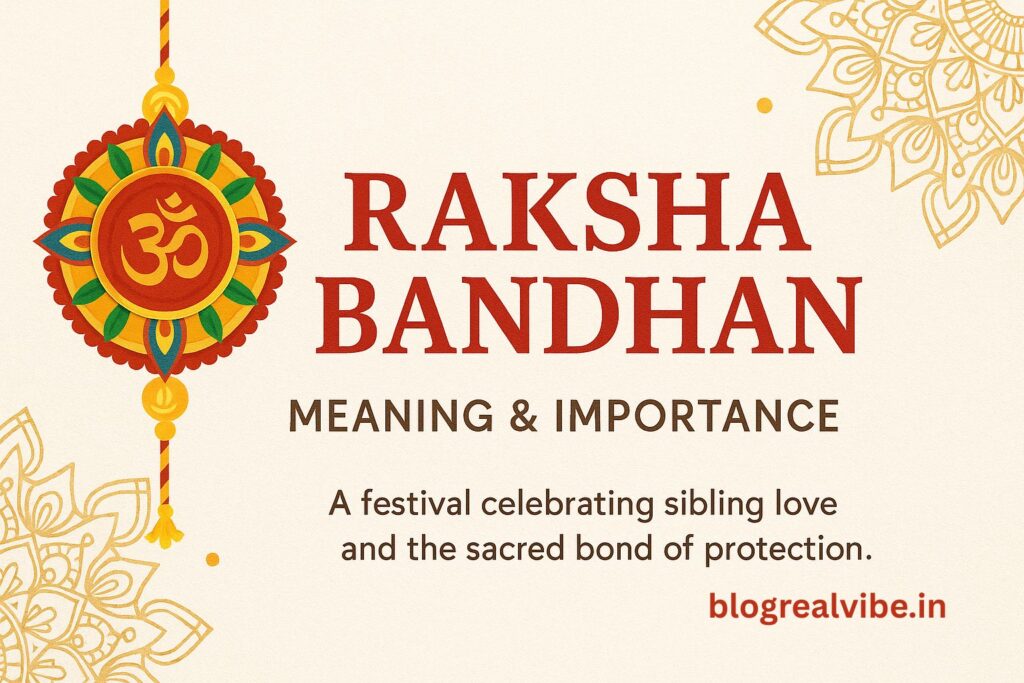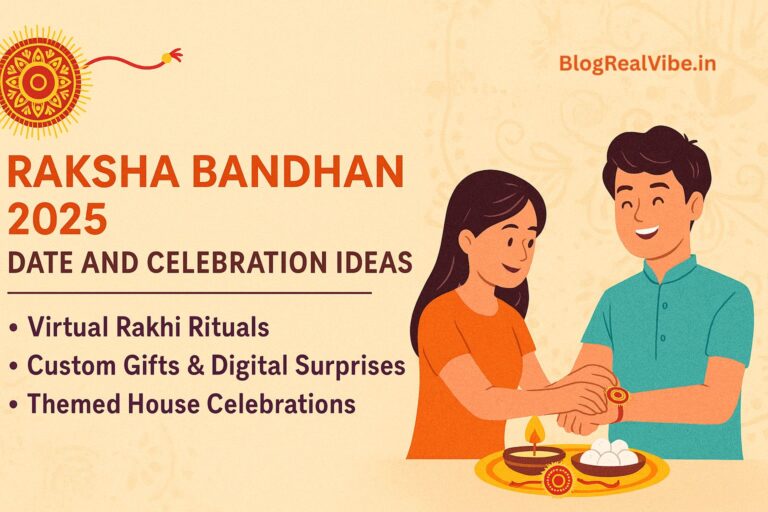Meaning & Importance of Raksha Bandhan – A Timeless Celebration of Sibling Love 🌟
Raksha Bandhan isn’t just a day marked on the Hindu calendar—it’s a heartfelt tradition that beautifully blends history, emotion, and cultural unity. Whether you’re tying a rakhi on your sibling’s wrist or sending it through a digital app, the essence of Raksha Bandhan remains the same: love, protection, and lifelong bonding.

💫 What Does Raksha Bandhan Mean?
The term “Raksha Bandhan” comes from Sanskrit:
- Raksha = Protection
- Bandhan = Bond or Connection
Together, it symbolizes a sacred thread of protection and trust between siblings—especially between brothers and sisters. On this day, sisters tie a rakhi (decorative thread) on their brother’s wrist, praying for his well-being. In return, brothers promise to protect their sisters always, often gifting them tokens of appreciation.
But in 2025 and beyond, Raksha Bandhan has grown to include cousins, close friends, and even sisters gifting each other—proving it’s not just about gender roles, but about relationships built on mutual care.
🕉️ Historical and Cultural Significance
Raksha Bandhan has roots in ancient Indian mythology and real-life royal history:
- Lord Krishna & Draupadi: When Draupadi tied a cloth around Krishna’s bleeding finger, he pledged to protect her forever.
- Rani Karnavati & Humayun: The queen of Mewar sent a rakhi to Mughal emperor Humayun, seeking protection from invaders.
These stories show the deep values of trust, sacrifice, and unity that Raksha Bandhan has always represented.
💻 Raksha Bandhan in the Digital Age
In today’s hyperconnected world, even when siblings live continents apart, they’re just a click away. From sending e-rakhis and digital gifts to video-call ceremonies, Raksha Bandhan has evolved with technology—without losing its emotional charm.
It’s a festival that bridges generations and geographies, making sure the thread of love stays strong, no matter the distance.







